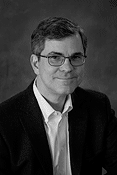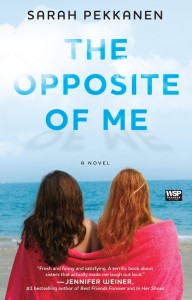 by Reece Hirsch
by Reece Hirsch
A few years ago, I was fortunate to read a copy of Reece Hirsch’s thriller THE INSIDER before it found a home. Now, I usually don’t read unpublished manuscripts, because my agent warned me against it. But I knew Reece from a critique group, so I made an exception. And boy, am I glad I did. THE INSIDER is a heck of a debut, everything a good thriller should be. I recommend picking up a copy before they sell out, you won’t regret it. -Michelle
My debut legal thriller The Insider was published by Berkley Books this month as a mass-market paperback, marking the end of the first phase of my education in how to, and how not to, write a thriller. While I am but a humble newbie writer, I learned a few things in my six-year struggle to complete a novel and get it published. I make no claims to the wisdom and experience of your regular Kill Zone authors – they’ve all written many more books than I have. But here are a few lessons that I think I’ve learned, most of them the hard way.
- The All-Important First Page. I’ve been enjoying the Kill Zone’s recent series of first-page critiques because the importance of the first page, and the first chapter, cannot be overstated. Take it from someone who sent his manuscript out to agents the first time with a less-than-gripping opening. The competition for the attention of agents and, later, publishers, is so intense that if the first chapter doesn’t grab them, they often won’t read further. I tried out several different openings for my book, in response to the urging of a couple of knowledgeable readers that it needed to be “bigger” and “grabbier.” They were right.
- Write What You Know – Then Make Stuff Up. Despite the number of legal thrillers lining the bookstore shelves, I found that, as a practicing lawyer, there were still many aspects of the legal profession and law firm life that were relatively fresh ground for the genre. If readers recognize
 authoritative details drawn from life (in my case, the world of lawyers and law firms), then they’re more likely to follow you when you venture into areas where you’re working from research or sheer fabrication (in my case, the Russian mob). For example, in The Insider, I touch upon the tussles over billing credit among partners that can sometimes define a legal career. In another scene, I try to show the drama that can be found in the gamesmanship of an M&A negotiation. I also drew upon my knowledge of privacy and security law in developing one of the novel’s key plot elements involving government domestic surveillance and an actual National Security Agency program from the mid-Nineties known as the Clipper Chip. However, a little legal verisimilitude goes a long way with most readers, and I soon figured out that if I painted too accurate a picture of the life of a young corporate attorney like my protagonist Will Connelly, my book would be about as exciting as a day spent reviewing contracts in a due diligence room.
authoritative details drawn from life (in my case, the world of lawyers and law firms), then they’re more likely to follow you when you venture into areas where you’re working from research or sheer fabrication (in my case, the Russian mob). For example, in The Insider, I touch upon the tussles over billing credit among partners that can sometimes define a legal career. In another scene, I try to show the drama that can be found in the gamesmanship of an M&A negotiation. I also drew upon my knowledge of privacy and security law in developing one of the novel’s key plot elements involving government domestic surveillance and an actual National Security Agency program from the mid-Nineties known as the Clipper Chip. However, a little legal verisimilitude goes a long way with most readers, and I soon figured out that if I painted too accurate a picture of the life of a young corporate attorney like my protagonist Will Connelly, my book would be about as exciting as a day spent reviewing contracts in a due diligence room. - Embrace the Process. Many of the debut authors that I’ve met recently have a first, unpublished manuscript in the drawer, their “learner book.” Instead of scrapping my first attempt and starting over on a second book, I chose, perhaps from sheer stubbornness, to laboriously rework and rework my first book until it was publishable. Whichever route you take, there seems to be no getting around the fact that, unless you are some sort of literary prodigy, writing a publishable novel often takes years of painstaking revision and refinement. Find a reader or two that you trust and listen to their comments. If you hear a suggestion that you know will make your book better, don’t fight it – even if means discarding a chapter or character that you love or doing a page-one rewrite.
- There Are Rules. This is a corollary to my point about revisions. There are certain rules and reader expectations that apply to thrillers. For example, your protagonist can’t be passive. And it’s always nice to kill someone early on. Read widely in your genre of choice, try to get a sense of the rules, and ignore them at your peril. If you’re violating a rule, make sure that you’re doing it knowingly and for a good reason, like subverting reader expectations.
- BlurbQuest. One thing that surprised me was how early the success of a book is evaluated by publishers. Before a single reader has purchased your book, its fate will to a certain extent be decided by how many copies are ordered by booksellers. And how do booksellers evaluate a book by a debut author? They judge the book by its cover, the blurbs and the degree of push that the publisher is giving the book, as reflected in how highly it is placed on the list in the publisher’s catalogue.As a writer, you can’t control how good your cover art is (but I was really pleased with mine) or where a publisher slots you on their list, but you can be the master of your own fate when it comes to obtaining blurbs. And if your blurbs are really good, it may influence how your publisher views your book (and thus where you end up on their list and how much effort goes into the cover art). Start your BlurbQuest early, and don’t be afraid to approach established authors. One of the great, pleasant surprises of my debut author experience has been learning how generous fellow writers, even very successful ones, can be when it comes to reading and blurbing a new writer’s work. And Kill Zone author Michelle Gagnon takes the prize because she actually read my manuscript and blurbed me before I even had an agent!
- Reece Hirsch is a partner in the San Francisco office of Morgan, Lewis, Bockius LLP.

